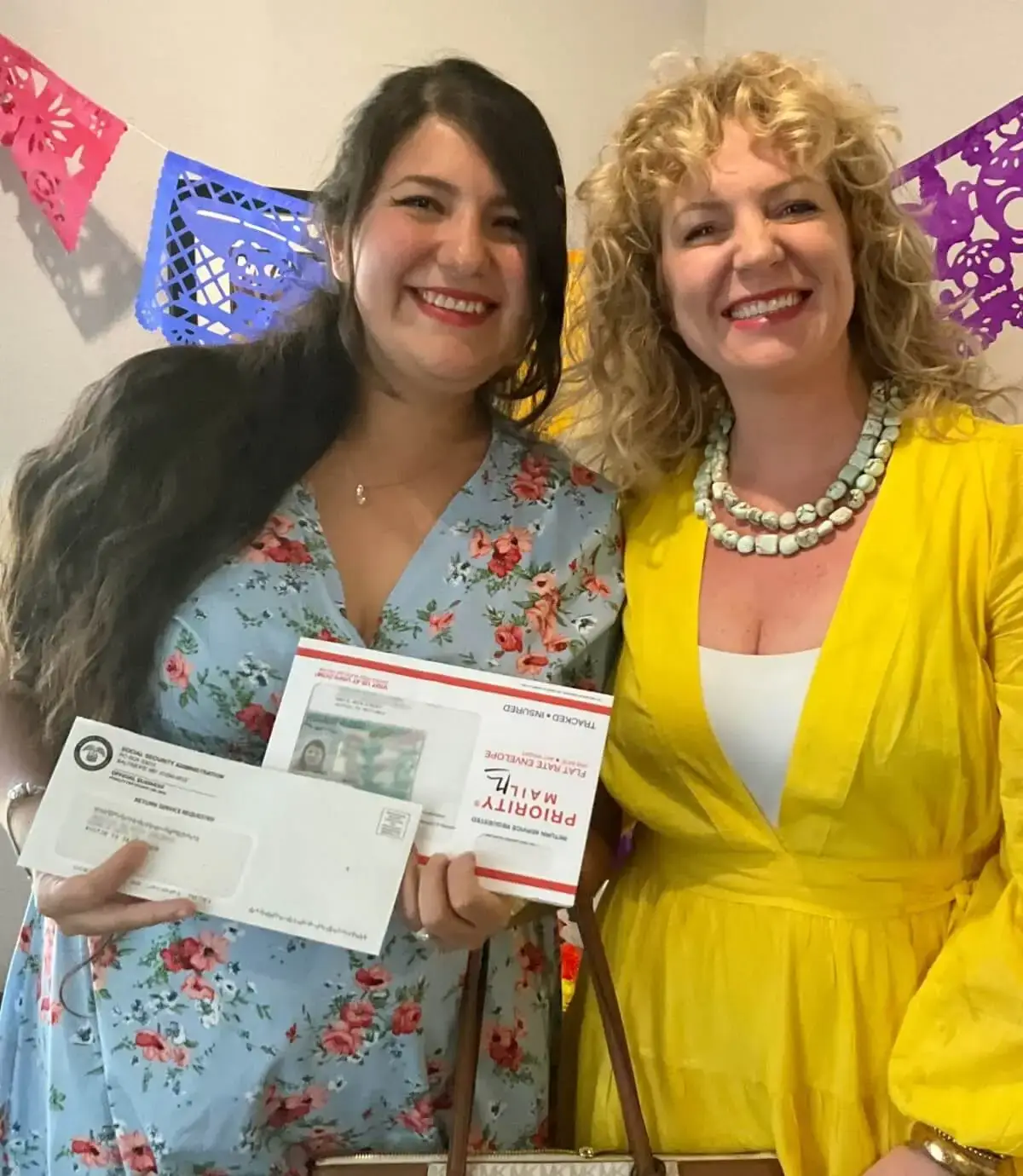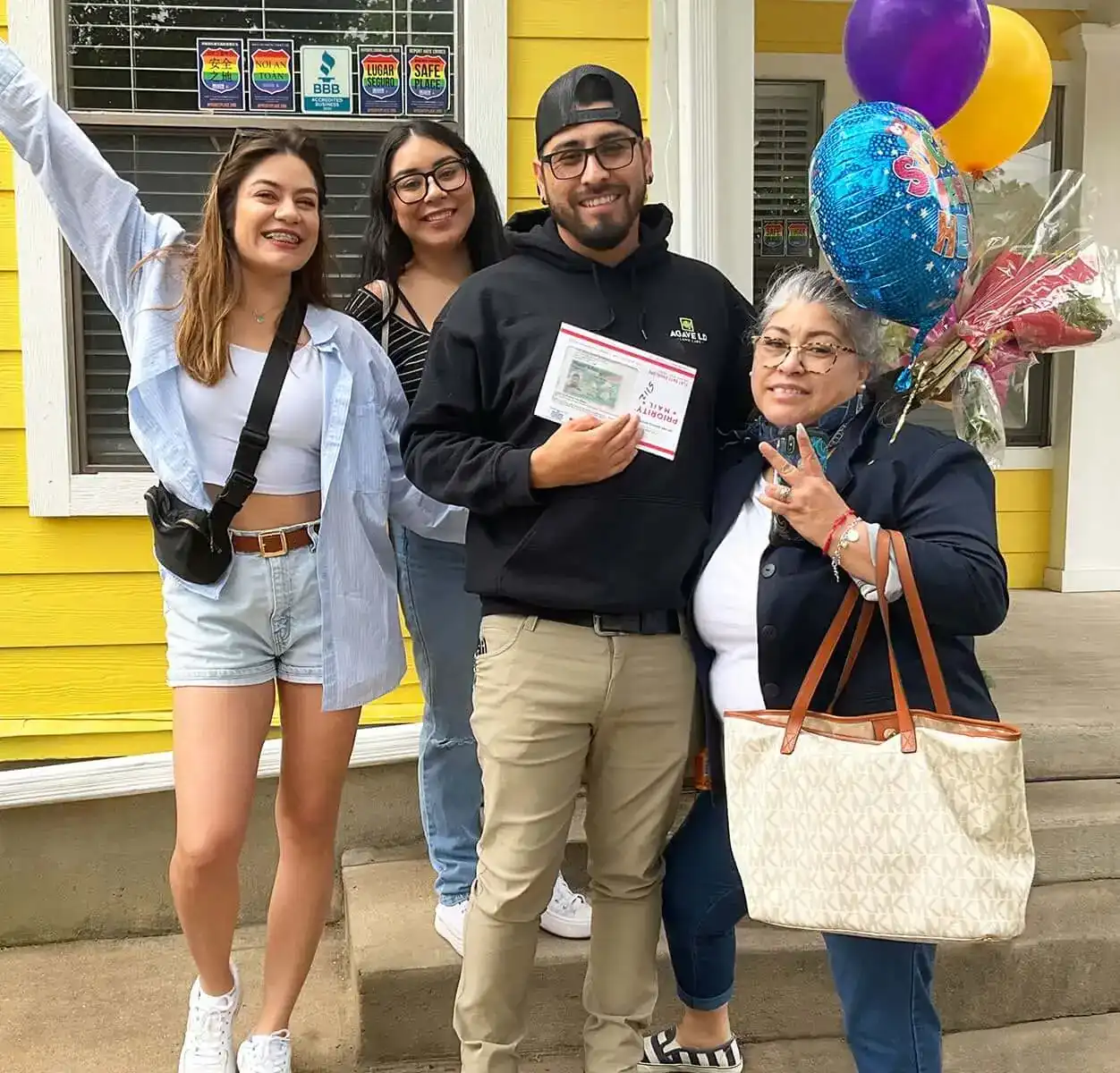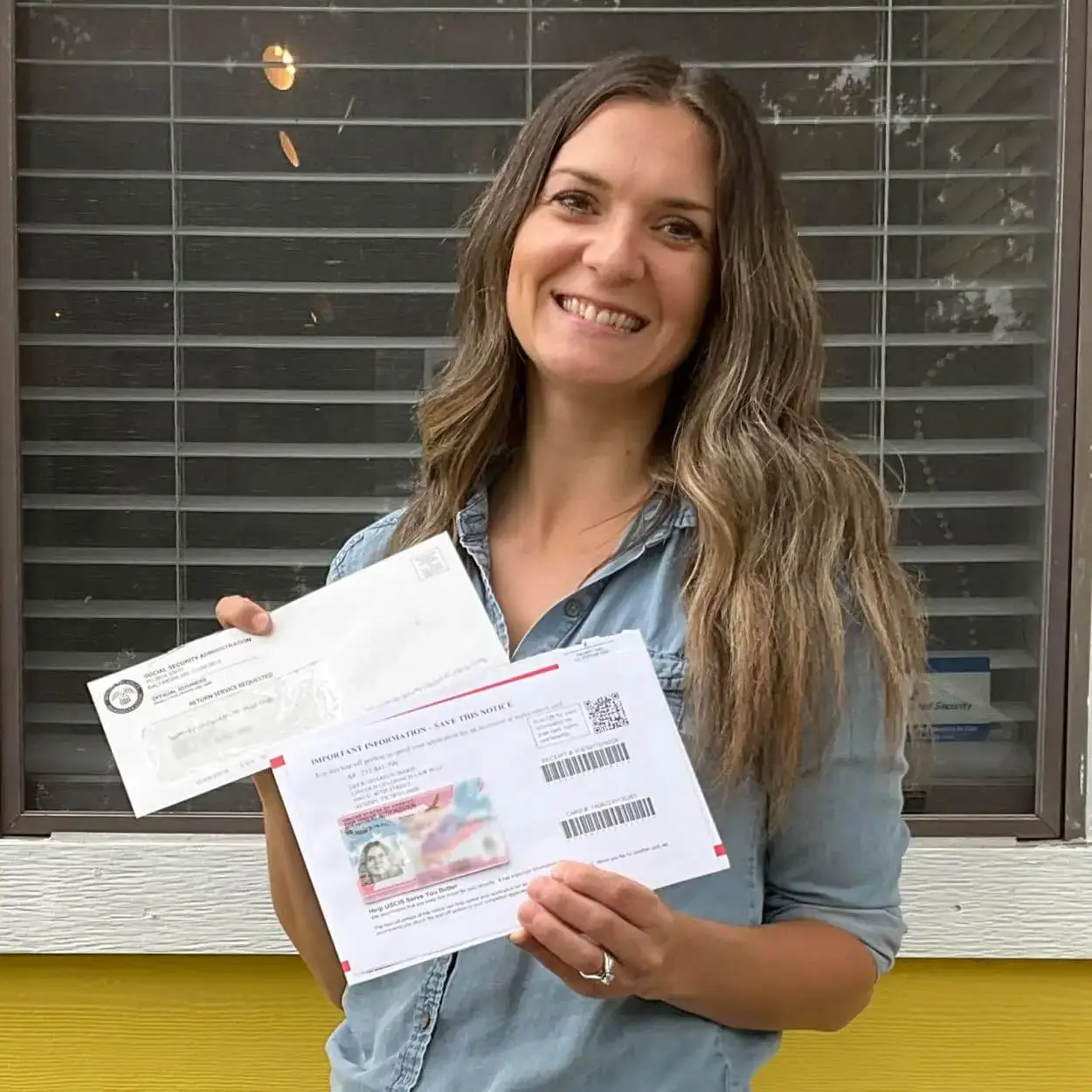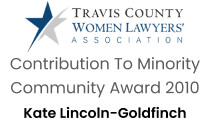Immigrant & Non‑Immigrant Visas At A Glance
People visit the United States for weddings, conferences, semesters abroad, or a fresh start that lasts a lifetime. Because goals vary, the State Department splits U.S. Visas into two broad buckets:
- Immigrant Visas – For those who intend to live and work in the U.S. permanently.
- Non‑Immigrant Visas – For travelers who need to be in the country only for a set period.
Both paths require careful paperwork and patience. An immigration attorney in Austin can help match your plans to the correct category before you invest time or filing fees.
What Counts As An Immigrant Visa?
Immigrant Visas open the door to lawful permanent residence, commonly called a Green Card. Because annual slots are limited, priority goes to applicants in specific groups:
- Family‑Sponsored Visas – U.S. citizens or Green Card holders can petition for spouses, children, parents, & certain siblings.
- Employment‑Based Visas – For professionals whose skills fill a documented need in the U.S. labor market.
- Diversity Visa Lottery – A random selection program for people from countries with low immigration numbers.
- Refugee & Asylum Visas – For those fleeing past or feared persecution.
- Special Categories – Investor Visas, religious workers, & Iraqi or Afghan nationals who supported the U.S. Government.
Because each path has its own rules, hiring an immigration lawyer in Austin who knows the local USCIS office and current processing times helps move your file forward without surprises.
Non‑Immigrant Visas: Temporary Paths & Smart Strategy
Not everyone who lands in the United States plans to stay forever. Maybe you’re coming for a semester of study, a six‑month project launch, or a quick getaway with family. In any of those cases, a non‑immigrant Visa is the ticket you need, one that says, “I’ll be here for a limited time, then I’m headed home.”
To qualify, you must show the consular officer that you have strong ties abroad: a job you’re returning to, property in your name, or close family who rely on you. An Austin immigration lawyer can help frame that evidence so the consulate sees a clear, credible plan.
Below are some of the most common temporary options:
- B‑1/B‑2 Visitor Visa – Business meetings, sightseeing, or a family wedding; these Visas let you stay up to six months at a stretch.
- F‑1 Student Visa – For full‑time study at an accredited U.S. school. You’ll need acceptance letters, proof of funding, and a plan to use your education back home.
- J‑1 Exchange Visitor Visa – Think research fellowships, camp counselors, or medical residencies that promote cultural exchange.
- H‑1B Specialty Occupation Visa – For professionals with at least a bachelor’s degree (or its equivalent) in a field where U.S. employers have a talent gap.
- E‑2 Investor Visa – Designed for entrepreneurs from treaty countries who put substantial capital into a U.S. business they will direct.
- TN Visa – A suitable option for Canadian & Mexican professionals in specific NAFTA‑listed occupations.
Each category has its own playbook; filing fees, timing quirks, and documentary must‑haves. A misstep can set you back months, so talking through strategy with an immigration attorney in Austin before you apply is time well spent.
Planning Long Term?
Non‑immigrant status works when your goal is short‑term. If you’re picturing a life here that lasts, you’ll eventually need an immigrant Visa or another pathway to permanent residence.
Family‑Based Immigration: Reuniting With The People You Love
Few moments are tougher than living oceans apart from loved ones. U.S. immigration law offers several avenues to close that distance, each tied to a sponsoring relative’s status.
Immediate Relative Visas
Unlimited in number and typically the fastest track. U.S. citizens can petition for spouses, unmarried children under 21, and parents. There’s no annual quota, so once paperwork is approved, a Visa is available.
Family Preference Visas
For relationships that fall outside the “immediate” box, adult children, married children, or siblings of U.S. citizens, plus spouses and unmarried kids of lawful permanent residents. Caps on each category mean waiting periods can stretch from a few months to well over a decade, depending on demand.
K‑1 Fiancé(e) Visa
When wedding bells are on the horizon, a K‑1 lets a foreign fiancé(e) enter the U.S. for 90 days. The couple must marry within that window, after which the new spouse applies for a Green Card. Timing is tight, so planning ahead with an Austin immigration law firm keeps the celebration stress‑free.
VAWA Visas: Safety & Status Under One Roof
Domestic abuse shouldn’t leave anyone trapped in legal limbo. Under the Violence Against Women Act (VAWA), spouses, children, or parents harmed by a U.S. citizen or permanent resident can self‑petition (no abuser’s signature required), and start the journey toward a Green Card.
An Austin immigration attorney helps survivors collect police reports, medical notes, and affidavits that prove both the abuse and a bona fide family relationship. After filing the I‑360, we monitor deadlines, secure work authorization, and stay by your side until permanent residence is granted.
Note: VAWA protection is gender‑neutral.
If family sponsorship isn’t available, employment may open the same door.
Employment‑Based Visas: Talent Meets Demand
U.S. employers look worldwide for skills. Five immigrant categories channel that talent, each with its own hoops:
- EB‑1 – Extraordinary ability, top professors, or multinational executives; often no job offer needed.
- EB‑2 – Advanced degrees or exceptional ability; usually requires a job offer and PERM labor certification.
- EB‑3 – Skilled workers, professionals, and other workers; offer and PERM mandatory.
- EB‑4 – “Special immigrants” such as religious workers or certain U.S. employees abroad.
- EB‑5 – Investors who place $800 k + and create 10 U.S. jobs.
Because annual caps create backlogs, an Immigration lawyer in Austin tracks Visa‑bulletin dates, drafts recruitment ads for PERM cases, and keeps your evidence ready the moment a slot opens.
The Green Card Journey: Family, Work & Lottery
A Green Card, officially, a Permanent Resident Card, lets you live and work in the U.S. indefinitely. Common routes include:
- Family Sponsorship – Citizens can petition for spouses, minor children, parents, and siblings; residents for spouses and unmarried kids.
- Employment Sponsorship – After PERM (if required), the employer files Form I‑140, and the worker later adjusts status or consular‑processes.
- Diversity Visa Lottery – A yearly quota for nationals of countries with low U.S. immigration numbers.
Refugees, asylees, trafficking survivors, and VAWA self‑petitioners have specialized tracks, too.
Many new residents receive a conditional Green Card valid two years (new marriages or EB‑5). During the 90‑day window before it expires, they must file to lift conditions, proving the marriage is genuine or the investment created 10 jobs. Once conditions lift, the card lasts 10 years and is renewable. Stay crime‑free, file taxes, and limit long absences, and you may seek citizenship after three or five years, depending on category.
Why Timing & Documentation Matter
Across all categories, USCIS relies on paperwork: birth certificates, tax returns, job ads, sworn statements, to judge a case. Missing pages trigger “Requests for Evidence” that stall approval. Working with an Austin immigration lawyer early closes those gaps before they appear.
Citizenship & Naturalization: Rights, Duties & Peace Of Mind
Trading a Green Card for a U.S. passport unlocks benefits that permanent residence alone can’t match. Naturalized citizens can vote in federal elections, apply for certain federal jobs, and travel on a U.S. passport without worrying about re‑entry hurdles. Citizenship also shields you from most deportation risks and opens the door to additional programs, think Social Security, FAFSA, and VA‑backed home loans.
To qualify, you generally need to be at least 18, hold lawful permanent resident status for five years (three if you’re married to a U.S. citizen), and show good moral character. The process includes biometrics, an English and civics test, and a final oath ceremony. An Austin immigration lawyer can help you gather records, prep for the interview, and head off surprises before they derail your case.
Seeking Asylum: When Home Is No Longer A Place Of Safety
If you face persecution because of your race, religion, nationality, political opinion, or membership in a particular social group, U.S. asylum offers a path to safety. To win protection, you must file within one year of entering the country (certain exceptions apply) and prove that your government cannot (or will not) shield you from harm.
Asylum cases move through interviews or immigration court hearings, where detailed affidavits, country‑condition reports, and expert testimony carry real weight. Working with an immigration attorney in Austin who understands both humanitarian law and local court expectations can make the difference between approval and removal.
What Immigrants Face Legally & How To Move Forward
Deportation (Removal) Proceedings
Deportation is the government’s way of forcing a non‑citizen out of the United States. It can start because of a criminal conviction, an immigration paperwork error, or simply staying past the date on your Visa. After a Notice to Appear, an immigration judge listens to your side and decides whether you may stay. The stakes are high: removal can separate families, cost jobs, and interrupt a child’s schooling.
Because the consequences are so heavy, treat every notice seriously. Defenses such as asylum, cancellation of removal, or a VAWA self‑petition may keep you here, but timing is tight. An Austin immigration attorney can review your record, spot the strongest argument, and present evidence clearly in court.
Many people first learn about removal when a “bag and baggage” letter arrives or a routine traffic stop uncovers a warrant. Move quickly. Collect tax returns, school transcripts, medical records, and letters from community leaders; these documents highlight positive equities that can sway a judge. Waiting until the last minute makes it harder to build a compelling defense.
Filing Immigration Appeals
A judge’s decision against you is not always the final word. Just like other legal systems, immigration law in Austin allows appeals. You may challenge a deportation order, the loss of a Green Card, or the denial of a benefit application.
Most people start with the Board of Immigration Appeals (BIA). If you lose there, the U.S. Court of Appeals may take a second look. The clock matters: file your Notice of Appeal within 30 days or the door closes. A well‑reasoned brief, backed by transcripts and new legal authority, can reshape the outcome. Working with an Immigration lawyer in Austin who has handled BIA filings helps you avoid technical mistakes that sink a case.
Careful strategy can turn a setback into a second chance, preserving careers, keeping families intact, and giving you the breathing room needed to continue building your life here.
The Adjustment Of Status Process
Sometimes the goal is not to fight removal but to secure permanent residence. Adjustment of status lets certain non‑citizens apply for a Green Card from inside the country. You need to be admissible and usually must have an immediate relative or a qualifying employer who can sponsor you.
The process begins with Form I‑485 and a packet of supporting evidence. Next come fingerprints, a background check, and a USCIS interview. Cases often sit for months, and a simple omission can trigger a Request for Evidence or a denial, which could lead to removal proceedings. An Austin immigration lawyer guides you through each form, keeps copies organized, and prepares you for every question.
What Can An Immigration Attorney In Austin Do For You?
Visa advice is only the starting point. An immigration lawyer helps identify the right category: work, study, or family; and gathers the documents that prove you qualify. When a hearing looms, counsel can negotiate with ICE, argue in court, or craft an appeal. We also track changes in federal rules, filing fees, and deadlines, so nothing slips through the cracks. If a policy shift affects your status, your immigration attorney lets you know before trouble starts.
For businesses, counsel drafts compliance plans that protect against audits. For families, we file waivers that keep households together. In every scenario, a steady legal partner lowers stress and raises the odds of success.
Who We Are At Lincoln‑Goldfinch Law – Abogados de Inmigración
Lincoln‑Goldfinch Law is an Austin immigration law firm grounded in service. Our bilingual team listens first and then builds a plan that fits your life. We have represented clients in family petitions, employment cases, naturalization, deportation defense, and humanitarian relief since our founding.
Each Austin immigration attorney in our office meets weekly to share updates and refine strategies, so you receive the benefit of collective insight. We rely on secure portals for document exchange and send regular case updates, keeping you in the loop at every stage.
Our firm culture centers on empathy, clear communication, and practical solutions. Whether you need a last‑minute bond motion or long‑range guidance toward citizenship, we offer direction that is both realistic and respectful.
Reach out today. A short conversation with an immigration lawyer in Austin from our team can clarify your options and set a path toward your immigration goals.


































































